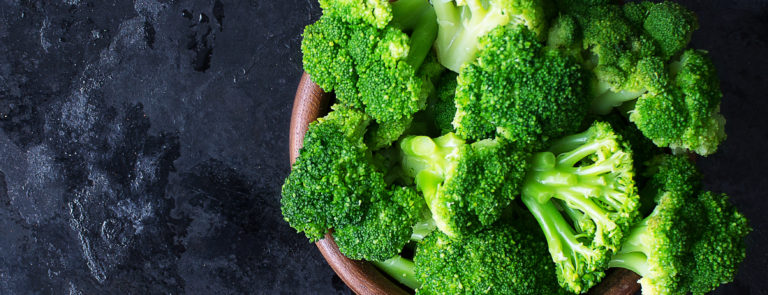20% off €35
Code:HB20
Why is broccoli good for you?

Broccoli is a staple of any healthy diet but find out what makes them good for you, its nutritional benefits and how to include more broccoli into your diet.
Tasty, crunchy, and oh-so-good for you, broccoli is a staple of any healthy diet. But just how healthy are those little trees? Here, we explore just what makes broccoli good for you, as well as its nutritional benefits and how to incorporate more broccoli into your diet.
Broccoli nutritional profile
It will probably come as no surprise that broccoli is jam-packed full of nutritional benefits, including:1- Vitamin C: essential for promoting collagen production, Vitamin C is important for helping our bodies heal. It’s also a powerful antioxidant, helping to protect the body from damaging free radicals
- Vitamin K: good for the proteins involved in blood clotting
- Folate: essential for the production and maintenance of new cells in the body
- Potassium: vital for the nervous system and heart contraction
- Fiber: good for promoting digestive health
The health benefits of broccoli
Aside from all those vitamins and minerals, broccoli also offers a range of other health benefits:It reduces inflammation
One study2 found that Kaempferol, a flavonoid found in broccoli, is linked to a strong anti-inflammatory capacity in animals. Another recent study on tobacco smokers found that eating broccoli led to a significant reduction in markers of inflammation.3It may protect against certain types of cancer
Some types of vegetables, including broccoli, have been found to reduce cell damage caused by some chronic diseases, including some types of cancers.4 5 There have been a variety of studies around this topic, with findings showing that broccoli may protect against breast6, prostate 7, stomach8, colorectal9, renal10, and bladder11 cancers.It reduces constipation
Rich in fiber and antioxidants, it’s no secret that broccoli is great for our digestive systems and supporting healthy bowl function. But did you know that it’s also good for reducing constipation? A recent study12 found that people who ate broccoli were able to defecate easier than those who didn’t eat it at all. However, more research is needed on this topic.It may support a healthy brain function and slow mental decline
Good news, eating broccoli is linked to maintaining a healthy brain function and slowing mental decline associated with aging.13 One animal study14 showed that mice treated with Kaempferol has less brain injury and reduced inflammation of brain tissue following a stroke-like event.How to cook broccoli
Incorporating more broccoli into your diet is easy! Here are three ways to cook those little trees for maximum deliciousness:15- Blanching: firstly, prepare a bowl of ice water and leave it next to your stove. Next, bring a large pot of water to the boil and add a teaspoon of salt. Add your broccoli florets and cook until crisp and tender (this should take about 1 ½ minutes). Remove with a slotted spoon and put straight into the ice water. Once the water has come back to the boil, cook the stems until crispy and tender.
- Steaming in the microwave: place your broccoli into a microwave-safe dish and pour water over the top. Cover with a plate and microwave on high for 3-4 minutes. Check if broccoli is tender and serve.
- Sautéing: to sauté your broccoli, it’s important to make sure it’s as dry as possible. Then, film a skillet with oil and set over a medium-high heat. Add the florets and toss to coat with the oi. One minute later, add the stems and continue cooking, stirring frequently, until your broccoli has turned bright green and feels tender



